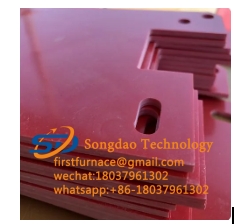- 01
- Dec
Detailed introduction of the invalid reason of SMC insulation board
Detailed introduction of the invalid reason of SMC insulation board

There are many reasons for the failure of the SMC insulation board, and one of the more critical factors is caused by aging. If it is kneaded by other objects at high temperature, the insulator may be short-circuited, which will cause the insulation board to fail. Let’s give us a detailed introduction to the reasons for the failure.
(1) Газдың бұзылуы
When the electric field strength of the SMC insulation board exceeds a certain value, it will cause gap breakdown. If the gap is too small, the electric field strength will increase and cause gas breakdown. Commonly, capacitors break down due to excessively high applied voltage, electric sparks caused by exposed wires, and arcs when the switch is closed. These conditions indicate that they no longer have insulation properties.
(2) Сұйық диэлектриктің ыдырауы
The electric strength of liquid dielectric is much higher than that of gas under standard state. If the oil contains impurities such as moisture, its electrical strength will be severely reduced, and it is prone to breakdown, leading to failure of the insulating material.
(3) Беткі қабаттың бұзылуы
SMC оқшаулағыш тақтасын пайдалану кезінде қатты ортаның айналасында жиі газ немесе сұйық орталар болады, ал бұзылу жиі екі диэлектриктің интерфейсінде және электрлік беріктігі төмен жағында жүреді, бұл сусымалы бұзылу деп аталады. Бетіндегі бұзылу кернеуі бір диэлектрикке қарағанда төмен. Конденсатор электродының шетінде қозғалтқыш сымының (шыбықтың) ұшындағы изолятор сусымалы разрядқа бейім, бұл оқшаулауға үлкен зиян келтіреді және істен шығуға әкеледі.
The above is an introduction to the reasons for the failure of the SMC insulation board. In the face of different breakdown methods, the results have led to the failure of the insulation board and can no longer exert its due performance. Therefore, we must pay attention to the electrical The control of the equipment prevents unnecessary damage during operation and affects the insulation effect.
